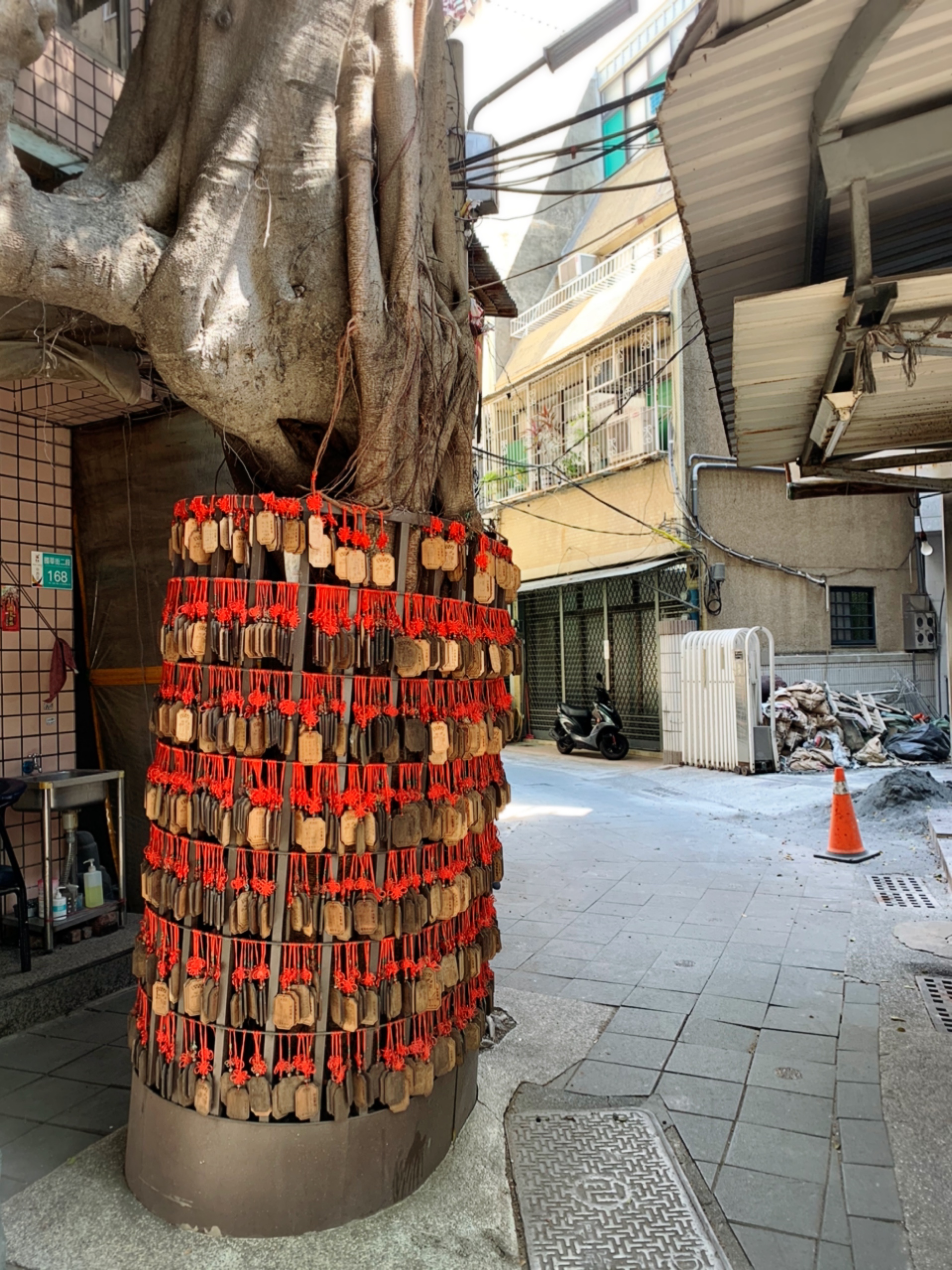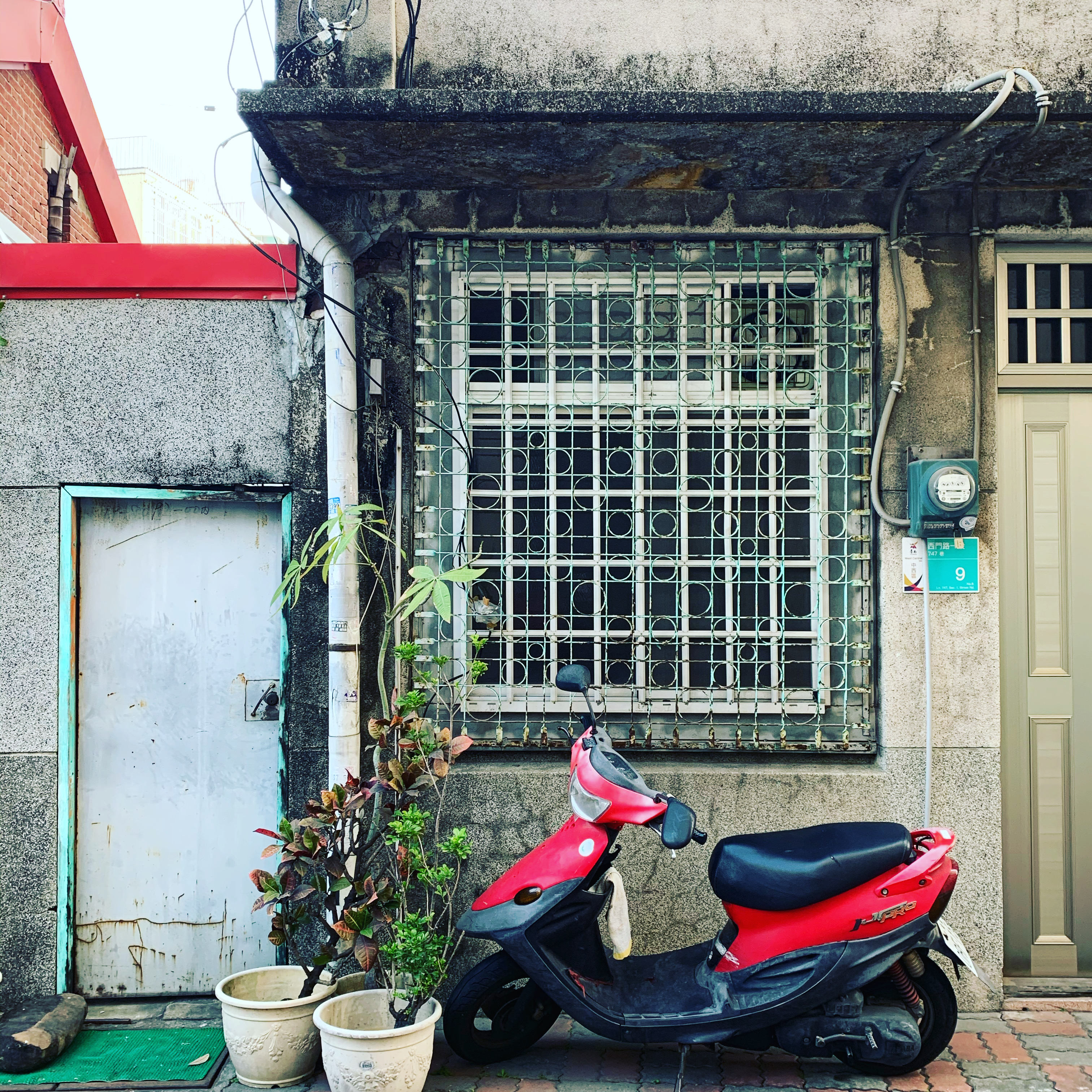I was in Tainan over the weekend — I have no specific post about it because I didn’t do anything out of the ordinary, but I’ll share a few pictures. A lot of the temples there have those wooden plaques you can write a wish on, pray, and then hang your wish on a board or tree. If you actually stop to read other people’s wishes (and I do), you’ll notice that one of the most common is to “marry and have kids” or “have a little treasure as soon as possible”. Health, peace, love, family and career/financial success are also popular, for obvious reasons.
But it struck me — for a country with a population that the news keeps saying doesn’t want to procreate, a lot of people sure do want to procreate.
In fact, recent statistics show that Taiwan’s birthrate has continued to fall, remaining at or near the bottom of global fertility rankings. There’s some variation, with numbers being higher in Changhua, the outlying islands, Taoyuan and to a lesser extent, Hsinchu.
I wrote about this a very long time ago. The article probably sucks and I don't feel like going back to read it again, but I think it’s time to take another look. Mostly, I want to point out that people do want to have children. The question isn’t how to change people's attitudes; it’s how to make what most people already want possible. Shaming them simply won't work, as this Taipei Times article rightly points out.

Tricky Taipei has already published a good piece focusing on the availability of fertility treatments to unmarried people and same-sex couples, so I won’t cover that here. (I also hit this topic in 2016, so there's no need to repeat). The gist: anyone can freeze their eggs, but one must be legally married to a person of the opposite sex to pursue treatments like IVF. That’s not right and it really must change.
For those who aren’t seeking fertility treatments, however, the reasons why the fertility rate is low should be pretty obvious. Here's a brief recap:
1.) Salaries are too low
When you think about the cost of having children compared to Taiwan’s famously stagnant salaries, would you want to constantly worry that you can’t pay bills or raise them the way you want?
2.) Housing costs are too high
It’s not unusual to want to own your own home before starting a family, or be close to that goal. Although it feels like new apartment complexes are going up constantly, they’re often half-empty, with many units acting as tax shelters or investment properties, not living spaces. Everyday people can’t afford enough space to raise a family comfortably close enough to work and school, so they delay having children.
3.) Working hours are too long
In other words, when you’re grinding yourself to a pulp a hundred hours a week for some crappy boss, you just don’t have the energy to bone down.
In addition, if you're a double income household but don’t have family who can help, but both parents work, childcare is expensive. This is probably why so many parents pay for cram schools: most of the time, it feels like fancy daycare because that’s exactly what it is.
4.) Straight-up sexism
Adding to this, a lot of Taiwanese women describe the country’s pretty strong maternity leave policies as “看得到但是吃不到” — we can see it, but we can’t eat it. In theory it's guaranteed, but we can’t access it. I work with a lot of career-minded professionals and over and over, the women tell me that they absolutely face passive-aggressive (or just plain aggressive) repercussions at work for taking their full allotted maternity leave, or are discriminated against in hiring because employers fear they’ll have children soon.
And, of course, the gender wage and work gaps don't help. Taiwanese women still earn less than men and typically 'female' jobs tend to be lower-to-middle white collar. Women who feel satisfied with their pay and career trajectory are probably more likely to feel ready to have children.
5.) People are marrying later
Single parenthood is fairly rare in Taiwan, although of course it happens. The government actively discourages it -- the abortion laws are intentionally eugenicist, not egalitarian.
With people mostly intending to have children after marriage, getting married later means fewer years to have children. That's a good thing. Personally, I don’t think my sense of self was fully settled until I was over 25, and I was closer to 30 before I felt mature enough to actually make a marriage work. There's even research backing this up, so it's probably true for a lot of people. In the past this could be papered over somewhat with traditional gender and family expectations, though I would bet just as many marriages were what we’d now call ‘failed’ in the past, even if divorce was not accessible.
6.) Lifestyles are changing
This isn’t a bad thing. It’s not wrong to want to live in a desirable area near work and school, with enough space, near but not with family, as Taiwanese youth are coming to realize the benefits of some privacy. It’s not wrong to want some of the trappings of a good life for your family — everything from travel to new clothes when you need them to not stressing about bills to sending your kids to good schools. Stagnant salaries mean fewer children, period.
7.) Gender roles are changing
Women have known for awhile that having more children means more work for them, if their husbands don’t step up. This is especially true if your support network can't step up to help. Some women have the desire and ability to be stay-at-home mothers, but even for families who can afford it, not every woman wants to give up her career, even if the hours are punishing. Can you blame them for not wanting to take on more in a society with this kind of work culture, where men still do far less housework than women?
This is also why people are marrying later: in the past perhaps one didn’t get as much of a say over what their married life would look like, because expectations were so set. Men earned money, and women could work (often running the most important parts of the family business) but had to do all of the traditional ‘women’s’ work, too. Even the Taiwanese feminist movement of the 1970s accepted this. Now, people want to marry a partner, not a role.
An interesting aside: the birth rate doesn't seem to be affected that much by educational attainment. There's a drop-off in bearing children between female Master's and PhD holders, and a dip for women with Master's degrees in their twenties, but otherwise, the birth rate for women with Master's degrees in their 30s and 40s exceeds those with college degrees. This is likely because they delayed having those children, so the uptick in births appears in higher age categories.
This explains a lot
This is probably why Changhua and the outlying islands and, to a lesser extent, Taoyuan and Hsinchu, have higher fertility rates. I can't prove this, but in my experience the outlying islands are more conservative generally, so expectations of gender roles and family life may not have changed as much. Plus, young people who stay instead of moving to Taiwan likely live near family.
Changhua has some good things going for it, and the Taichung job market isn’t far away. And, again, if you’ve decided to raise a family in Changhua, it’s likely because you want to be near your own family support network. Hsinchu has comparably lower housing costs relative to higher science park salaries, and Taoyuan is commutable to both Hsinchu and Taipei, as well as being its own logistics hub due to the airport.
So what can we do?
Personally, I’m not sure constantly growing the population is the best way forward. Taiwan has limited space, and it’s already densely packed. Other solutions to deal with a super-aged society until population can level off would probably be better, but I don’t have any to offer beyond increased assistance to seniors.
And of course, the statistics could be improved immediately if we just created a path for dual nationality for all immigrants, including the majority who are workers from Southeast Asia.
But let’s say we do want more babies in Taiwan. How do we get people to have them?
Family subsidies are an acceptable start, but they are insufficient and don't seem to be working well. Measures to promote increased wages and lower work hours — yes, both of these, at the same time — would have a stronger impact, but it's hard to say what would achieve this and how enforceable it would be. Crappy bosses wouldn't like it because they would have to hire the number of people actually needed to get the work done and pay them fairly, but the goal would also be to reduce the number of bosses who can get away with being crappy.
Affordable housing is something that can be addressed immediately. Instead of big infrastructure projects (I’m looking at you, F***ing Taipei Dome and every unnecessary new "Aerotropolis" and science park plan) while greenlighting housing nobody can afford to live in, why not focus on affordable housing, renovate unoccupied urban structures and incentivize (not force) private construction companies to build human shelter, not tax shelter? At the same time, create or expand a mortgage or deposit subsidy for people with dependent children that can help them buy a first or larger home.
Affordable childcare would help too. France has a subsidized “crèche” system; why can’t Taiwan? While we're at it, increase the availability of low-cost or free public pre-school, and create more engaging after-school programs for children that don't involve sitting at a desk for a few more hours memorizing facts to regurgitate on tests.
Finally, the government can and must listen to gender equality thought leaders. With progressive laws that don’t stigmatize or render inaccessible single or same-sex couple parenthood, enforcing gender equality laws and a strong “step it up, men (and bosses)” message, chances are we can make Taiwan a society where having more children is once again an appealing choice for women.
Some of these changes would be complex and difficult, but others would be relatively straightforward. Some do require an outlay of political capital: reasonable work hours and pay will anger employers used to exploiting workers, and some of those companies skate by on razor-thin margins. Homeowners and development companies won't want to see the value of their properties decrease as housing becomes more affordable.
While I do understand the reasons behind such push-back, the changes that would actually solve the birth rate problem will also result in greater socioeconomic and gender equality. A robust middle class creates appealing conditions for people to grow their families. Funny how that works, eh? I'm not particularly sympathetic to those who resist because they thrive on inequality, keeping salaries low and housing prices high.
The government has a choice here: either take the necessary steps to actually address the low birth rate and face the inevitable resistance head-on, or don't -- but then don't whine that young people aren't having children because the financial and housing security they need is out of reach.
Most people do want children. There is no problem with young people’s attitudes and even if there were, they’re not going to change so all we can do is work with them. So we need to look at society for what it is and create targeted solutions that actually address the underlying issues that cause people to decide against having more children.








